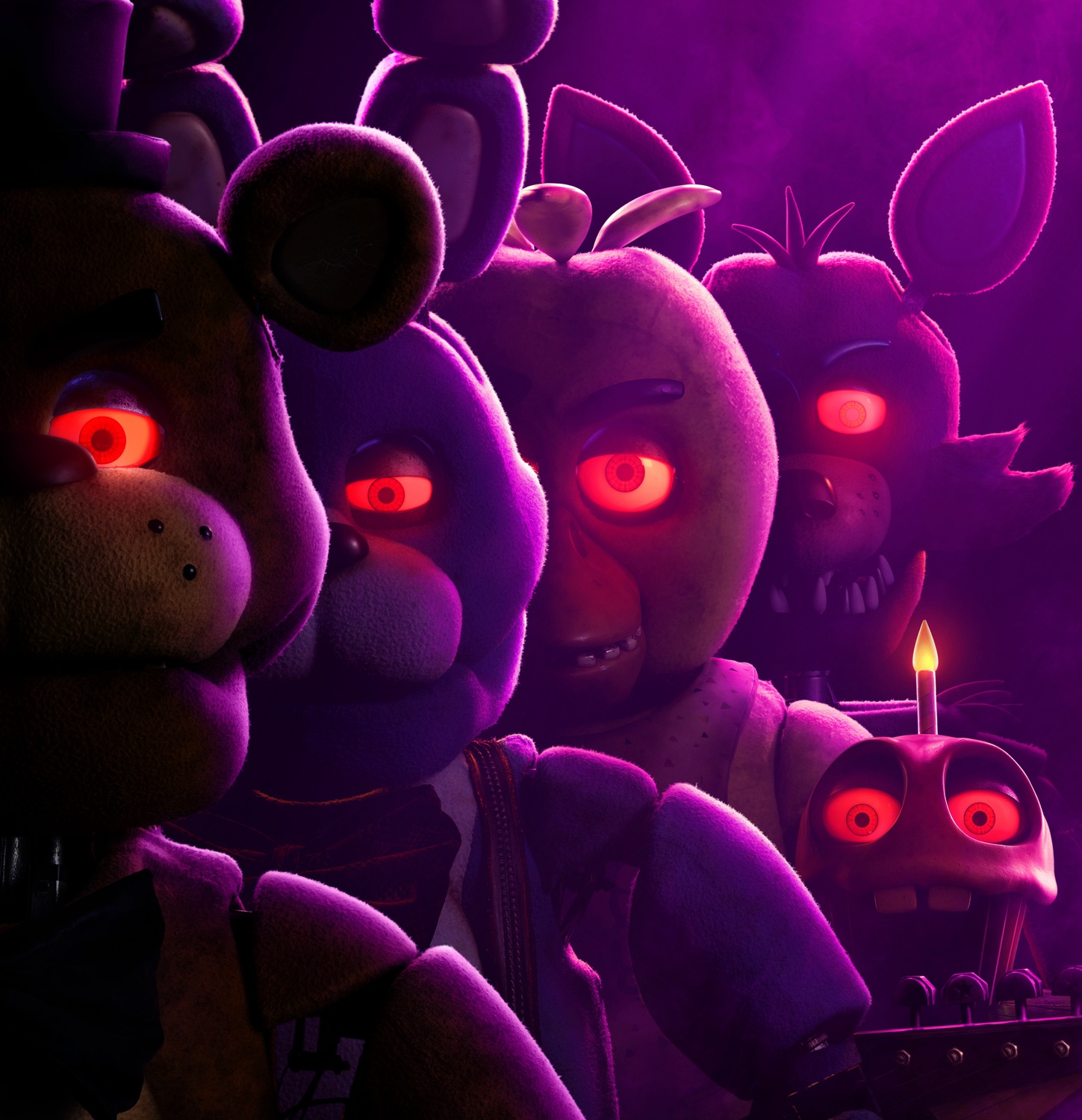
News
Summers Will Not Finish Semester of Teaching as Harvard Investigates Epstein Ties

News
Harvard College Students Report Favoring Divestment from Israel in HUA Survey

News
‘He Should Resign’: Harvard Undergrads Take Hard Line Against Summers Over Epstein Scandal

News
Harvard To Launch New Investigation Into Epstein’s Ties to Summers, Other University Affiliates

News
Harvard Students To Vote on Divestment From Israel in Inaugural HUA Election Survey
‘Five Nights at Freddy’s’ Review: A Nostalgic Flashback of Fazbear Fun
Dir. Emma Tammi - 3 Stars

Freddy Fazbear's Pizza: a fantastical pizza parlor for kids and grownups alike, bringing together the perfect combination of family fun and murderous gore.
Initially envisioned in nine influential games by Scott Cawthon, director Emma Tammi has brought the beloved horror franchise and its infamous pizza joint back to life in her newest film “Five Nights at Freddy’s.” The tale of possessed animatronics viciously terrorizing a security guard lends itself to an inherently whacky plot. But instead of pretending to be what it is not, the film leans into its goofy storyline and delivers seamlessly hilarious moments and applaudable jump-scares.
Deviating from the story of the games, Mike Schmidt (Josh Hutcherson) is the focal point of the newest addition to the video game series. In lieu of featuring more jump-scares from vicious animatronics, much of the film’s run time focuses on Mike’s motivations for choosing an ill-paying job at a rundown ’80s pizza parlor — ranging from avenging his little brother to saving his sister from the spirits of the children stuck in the suits of the animatronics he monitors during the night shift.
The film, however, disappointingly falls short in the places where it veers from the storyline of the video games. Even with a wide range of creative freedom in creating the adaptation, the script fails to develop an impactful storyline to complement the expansive lore that the franchise is beloved for. For instance, the film is riddled with scenes of Michael witnessing his younger brother’s abduction, an event which leads him to spend his life in search for the abductor. The seemingly endless flashbacks to the same scene, however, turns the complex subject matter mundane.
Dialogue, while omitted in the early video games, similarly limited the film’s ability to make an impactful addition to the franchise. A new character to the story, police officer Vanessa Monroe (Elizabeth Lail), muddled the film with numerous puzzling remarks and unexplained appearances. Vanessa’s decisively choppy lines, coupled with the brutal cheesiness of several of the side characters, stripped the film of its ability to make a formative impression. These disappointing performances made it seem like the popularity of the franchise, rather than an engaging story, carried the weight of the film.
“Five Nights at Freddy’s” at its core, is horror. And while the film is far from frightening, its attention to detail allows it to uphold its chilling reputation. Each scene in the pizzeria leans into the eeriness of an abandoned restaurant; from the flickering overhead lights to the identical child drawings in the corridors, the set’s adherence to the video games allows it to effortlessly draw from their terrifying nature. The film similarly uses characters walking through the pizzeria — an area unseen in the games — to display the contrast of brightly colored fluorescents and dark, endless corridors that work together to create an unforgettably chilling set design. Fans can be similarly assured that the jump-scare horror that characterizes the franchise is well implemented in the movie, creating electric moments that keep audiences on edge throughout the film. Notably, the ongoing jump-scares from fan-favorite Balloon Boy was hilariously terrifying and maintained the momentum the film lost in its dull writing.
The film similarly garnered some strength through the impressive performance of Josh Hutcherson. With both his convincing delivery and impactful expressions, Hutcherson played an instrumental role in keeping the film engaging. Hutcherson’s effortless emotional switch from heart-wrenching familial scenes to terrifying run-ins with murderous animatronics effectively added dimension to the famous character that fans have never before seen.
With modern films seeming inescapably linked to CGI, “Five Nights at Freddys” refreshingly turns to practical effects to portray the franchise’s focal characters. Jim Henson’s Creature Shop designed and built the animatronics for the film, using practical puppeteering techniques to bring them to life, rather than CGI effects. In doing so, the film differentiates itself by heightening its creepiness not through an inherently scary plot, but by making its possessed animatronics eerily lifelike. This unique inventiveness successfully conveys the film’s vision of a realistic pizza parlor, and effectively adapts the characters from the graphics of the game to a real-life setting.
Having a timeline that runs back all the way to the 1930s and encompasses over 130 characters to draw inspiration from, the lack of an impactful plot in “Five Nights at Freddy's” seems all the more disappointing. Although, for true fans of the franchise, its naturally hilarious nature coupled with meaningful cameos makes the film an immersive, nostalgic journey back to Freddy’s.
—Staff writer Monique I. Vobecky can be reached at monique.vobecky@thecrimson.com. Follow her on Twitter @moniquevobecky.
Want to keep up with breaking news? Subscribe to our email newsletter.
